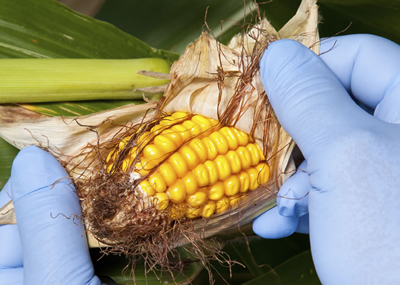GMO Facts | Are GMOs Bad?
Currently, few whole foods that are directly consumed by humans are genetically engineered. Many processed foods contain GMOs. Because the Pritikin Eating Plan is largely whole, unprocessed foods, it is largely free of GMOs.
GMO Facts | Background Information
Genetic engineering involves the taking of a gene or genes from one species and using this genetic material to modify the characteristics of the same species or a different one. Offspring inherit the new genetic makeup.
In agriculture, genetic engineering has been used for years to improve harvests, control pests, help crops tolerate herbicides like weed killers, and improve profits. Recently, genetic engineering has also been used for goals such as making plants more drought tolerant or more nutritious. Some crops have multiple gene modifications for multiple benefits.
GMO Facts | U.S. Agriculture

For some crops in America, such as corn, soybeans, and cotton, more than 90% of the crops are GMOs.
Currently, few whole foods that are directly consumed by humans are genetically engineered. Exceptions include papayas and sweet corn. Many processed foods contain GMOs.
Because the Pritikin Eating Plan is largely whole, unprocessed foods, it is largely free of GMOs.
That said, many new genetically engineered fruits and vegetables are moving through the federal approval process, and may soon be available for consumption.
Also, overreliance on some genetically engineered crops (mostly those resistant to herbicides) has led to environmental problems, for example, weeds that develop resistance to the herbicides. But these problems could be reduced through smarter farming practices, such as rotating crops.
Are GMOs Safe To Eat?
The Pritikin Program endorses the position on GMOs of the nonprofit consumer advocacy group Center for Science in the Public Interest (CSPI). Since 1971, CSPI has been a strong advocate for nutrition and health, food safety, and sound science. It has initiated numerous campaigns against the food industry.
In its recently published, well-researched, 19-page report entitled “Straight Talk on Genetically Engineered Foods,” CSPI stated:
”There is no evidence whatsoever that current genetically engineered foods like papayas or sweet corn, or ingredients made from genetically engineered crops such as sugar or corn meal, pose any risk to humans. The U.S. Food and Drug Administration, the National Academy of Sciences, the European Food Safety Agency, and numerous other international regulatory agencies and scientific bodies have all reached that same conclusion.”
To read CSPI’s full report, go to Straight Talk on Genetically Engineered Foods.
GMO Facts | Going Forward…
The physicians, scientists, and registered dietitians of the Pritikin Scientific Advisory Board will continue to review the published data from peer-reviewed medical journals on GMOs and their safety. If needed, the Board will update its Pritikin Position on GMOs.
“And certainly, if our Pritikin alumni choose to avoid GMOs as a matter of personal choice based on their own beliefs and/or environmental concerns, this Pritikin Position on GMOs does not negate that choice,” adds Cindy Berner, MS, RD, LN, lead registered dietitian for the Pritikin Intensive Cardiac Rehabilitation Program and member of the Pritikin Scientific Advisory Board.
Video sources available on YouTube.